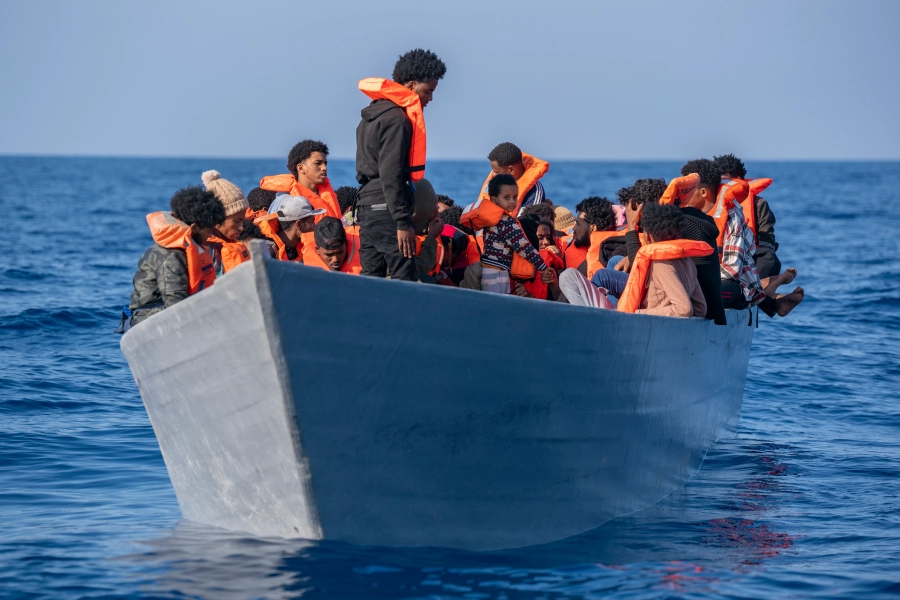By: Olivia Ho
You join a crowd of people also walking towards the fishing trawler. You and your family excitedly and nervously carry your suitcases, conflicted between wanting and not wanting to go on the boat. Still, you all walk towards the deck and aboard the boat. You are led to a tight, hot, and sweaty room. Days go by and your fear of the boat dissipates, replaced by your fear of lack of space. Overall, the past few days have been fine for you, except looking at the adults scares you – their faces show how worried they are every second of the day. Suddenly water comes rushing in and drowns you down into the beautifully strange and dangerous sea.
This is the story of 750 migrants who were led into a fishing trawler that ended up being a death trap. Everyone has a different story and reason why they were traveling.
Thaer Khalid al-Raha’s story starts early last year when his four-year-old son, Khalid, was diagnosed with leukemia diagnosis. For a decade, Thaer Khalid al-Raha’s family lived in a Jordanian refugee camp after fleeing from Syria’s deadly war. Doctors assured Thaer Khalid al-Raha’s family that the United Nations’ refugee agency would help them pay the fees to help Khalid fight against the disease. At first, the United Nations’ refugee agency kept their promise but slowly funding worsened and so did Thaer Khalid al-Raha’s son’s health.
To help his son, Thaer decided to travel to Europe to make the money needed to save his son. “Thaer thought he didn’t have a choice,” said his cousin, Abdulrahman Yousif al-Rahal.
Another passenger, Mohamed Abdelnasser, also decided to travel from Egypt to Europe for monetary reasons after he realized that he was not making enough money for his wife and two children to put food on the table.
Matloob Hussain has a longer story. He was sent back to Pakistan after his Greek residency renewal was rejected. This got him feeding twenty family members that, like Hussain had a hard time with their jobs. Meanwhile, Matlood was going through a crippling economic crisis in his job.
“Europe doesn’t understand,” said his brother Adiil Hussai. “We don’t leave because we want to. There is simply nothing for us in Pakistan.”
The trawler that was used left for Italy on June 8. Out of 750 people, only 104 people have reached the destination, and only eighty-two of the remaining 646 bodies have been found. 350 of the people on the boat were from Pakistan, but only 12 Pakistani survived.
As the news of the sunken fishing trawler reached the families, all were desperate to hear updates about their family members.
Khalid has been asking for his dad, but his family can’t explain it to a four-year-old, especially since they don’t have most of the answers.











